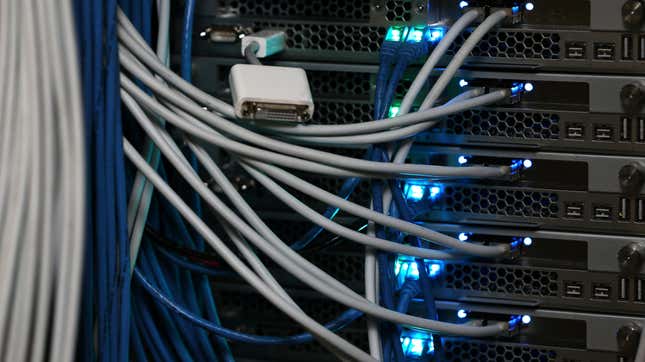
A coalition of broadband associations representing providers such as AT&T, Verizon, and T-Mobile sued New York on Friday over a law passed earlier this month that requires them to offer affordable internet for low-income families at rates of $15 and $20 per month beginning in mid-June.
In the lawsuit, which was first reported by Axios, the coalition argues that New York has no authority to regulate broadband prices because broadband services fall under the purview of the federal government. The suit asks the court to invalidate the New York law, rule that its enforcement would be illegal, and prevent the state from regulating broadband rates.
The coalition includes the New York State Telecommunications Association, CTIA, ACA Connects, USTelecom, NTCA, and SBCA.
Specifically, the coalition claims that the New York law is in conflict with a 2018 decision by the Federal Communications Commission that affirms that regulating broadband like a common-carrier, whose rates can be regulated, is contrary to the public’s interest. The same FCC decision changed broadband’s classification from a common carrier service to an information service. The New York law also violates the Communication Act’s prohibition against forcing information services to comply with common-carrier regulation, the group states.
In addition, although the coalition acknowledges that there is “a need to close the ‘digital divide’” and ensure broadband is available to all Americans, including low-income households, it states that broadband providers already offer low-cost plans for these groups. They also participate in federal programs that provide subsidies to help low-income households access broadband, such as Lifeline and the FCC’s Emergency Broadband Benefit program, the latter of which will go into effect on May 12.
New York affirms that the new law will affect seven million New Yorkers and 2.7 million households. Members of the public that qualify for the new $15 and $20 monthly rates—for high speed broadband and higher speed broadband, respectively—include households who are eligible or receiving free or reduced-price lunch, receive supplemental nutrition assistance program benefits, Medicaid benefits, and the senior citizen or disability rent increase exemptions, among others, according to Gov. Andrew Cuomo’s office.
In a statement, CTIA, a nonprofit that represents the wireless communications industry which is part of the coalition that filed the lawsuit, said that the New York law is overruled by federal law in the matter.
“While well-intended, this bill is preempted by federal law and ignores the $50 monthly broadband discount recently enacted by Congress, as well as the many unprecedented commitments, donations and accommodations that broadband providers have made for low-income consumers since the pandemic began,” CTIA said. “We urge state policymakers to coordinate with their Federal counterparts, and with the broadband industry, to better serve the needs of New Yorkers.”
In a statement on Friday, Cuomo, who is currently plagued by sexual harassment allegations and revelations that his office worked to hide nursing home deaths from covid-19, said he anticipated this response from the companies. He accused the providers of putting profit ahead of “creating a more fair and just society” and affirmed he welcomed the fight.
“Let me be abundantly clear — providing internet in the Empire State is not a god given right,” the governor said.